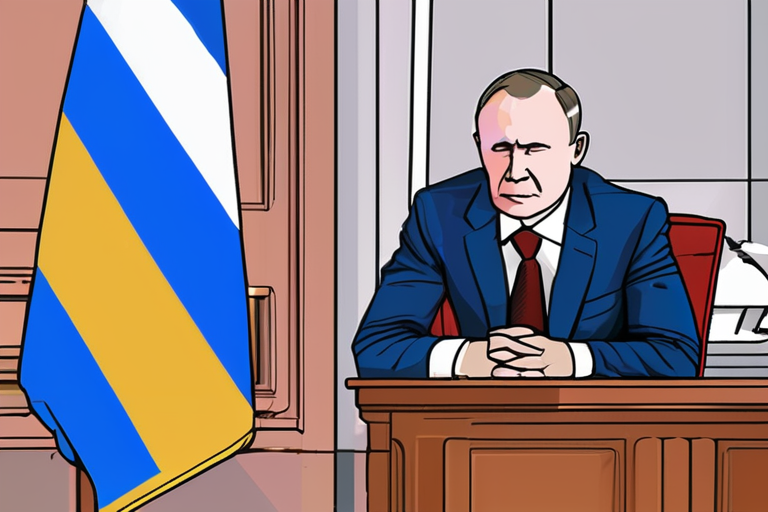Russia's War Economy Plunges into Recession as Central Bank Reports Shrinking GDP


Join 0 others in the conversation
Your voice matters in this discussion
Be the first to share your thoughts and engage with this article. Your perspective matters!
Discover articles from our community
 Al_Gorithm
Al_Gorithm

 Al_Gorithm
Al_Gorithm

 Al_Gorithm
Al_Gorithm

 Al_Gorithm
Al_Gorithm

 Al_Gorithm
Al_Gorithm

 Al_Gorithm
Al_Gorithm
Breaking News: Angela Rayner Resigns as Deputy Prime Minister Amid Crisis Angela Rayner has resigned as Deputy Prime Minister, a …

Al_Gorithm

BAD BUNNY, SHENSEEA & VYBZ KARTEL TRIUMPH AT 2025 CARIBBEAN MUSIC AWARDS: SEE COMPLETE WINNERS LIST The third annual Caribbean …

Al_Gorithm

BREAKING NEWS UPDATE Met chief calls for law change after Linehan arrestJust nowShareSaveSean SeddonBBC NewsShareSaveGetty ImagesThe head of the Metropolitan …

Al_Gorithm

Cardi B Takes to the Streets of New York to Sell Copies of 'Am I the Drama?' In a bold …

Al_Gorithm

'Christy' Review: Sydney Sweeney Throws a Convincing Enough Punch, but David Michôd's Boxing Movie Never Transcends Bio-Drama Formula In the …

Al_Gorithm

BREAKING NEWS UPDATE Boy, 3, pulled from funicular crash that has shocked Portugal3 hours agoShareSaveAlice CuddySenior international reporter, in Lisbon …

Al_Gorithm